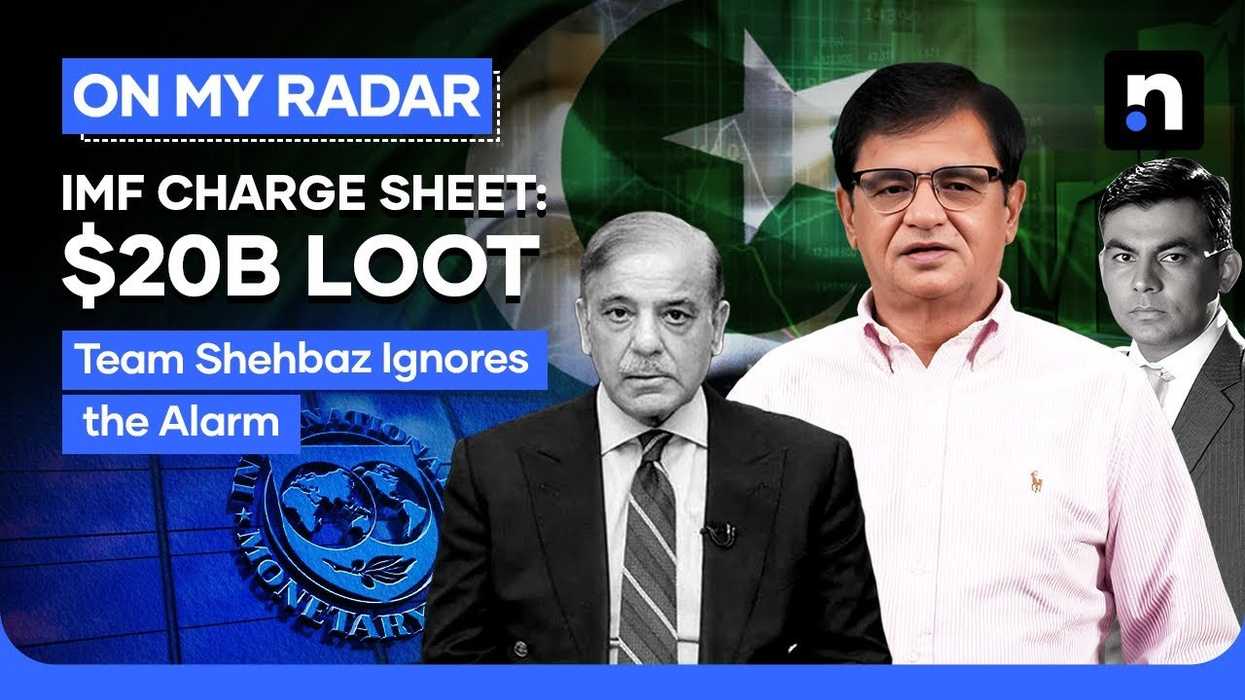IMF report delivers stinging critique of Pakistan’s governance
Kamran Khan says IMF findings show Pakistan loses up to 6.5% of GDP yearly due to corruption and poor governance
News Desk
The News Desk provides timely and factual coverage of national and international events, with an emphasis on accuracy and clarity.
Prime Minister Shehbaz Sharif’s government is facing mounting political and economic pressure after the International Monetary Fund issued what Kamran Khan described as a de facto “charge sheet” against Pakistan’s governance system.
Speaking on his program “On My Radar,” Khan said the IMF’s Governance and Corruption Diagnostic Assessment lays out stark findings about systemic dysfunction.
He said the report portrays deep-rooted administrative failures, weak accountability, and “organized corruption” in state institutions that he believes are dragging down the country’s economic potential.
Khan said the IMF estimates that Pakistan loses between 5 and 6.5 percent of its GDP each year due to corruption and poor governance. He said the losses are so severe that, if addressed, Pakistan’s economic growth could rise by as much as 6.5 percent annually.
He argued that this annual loss—roughly equal to $20 billion based on Pakistan’s economy of about $400 billion—represents nearly 65 percent of the country’s exports and 60 percent of its remittances. By his calculation, the figure also equals about 30 percent of the federal budget.
Khan said the IMF report notes that the assessment covers 2023 and 2024, years in which Shehbaz Sharif served as prime minister twice. He said this makes the findings particularly sensitive for the government, because the report spans both the Pakistan Democratic Movement’s tenure and the current coalition government.
He said the two periods combined give Shehbaz Sharif a little over three years in office, and the IMF’s conclusions effectively turn into a performance verdict on that entire stretch.
Khan said the report challenges the political narrative that highlights “Shehbaz Speed” as a hallmark of efficient governance. Instead, he argued, the IMF sees weak policy continuity, no clear economic recovery pattern, and widespread corruption.
According to Khan, the IMF did not specify an exact rupee value for corruption losses but relied on the percentage of GDP it says is lost annually to graft. He said that over the past two years, political and bureaucratic networks have allegedly taken the equivalent of PKR 55 trillion.
He emphasized that this figure is nearly three times the size of Pakistan’s current IMF bailout program, which totals $7 billion.
The IMF assessment, which Khan said runs 186 pages, outlines 15 priority areas and 92 reforms. The diagnostic exercise was conducted jointly with the World Bank in 2025 through two field missions. He said the study also examined PKR 5.3 trillion in assets and cash recoveries that the National Accountability Bureau (NAB) claims to have secured over the past two years.
Khan provided one-line summaries of the IMF’s recommendations, which include limiting executive discretion over public funds, restricting regulatory capture, ensuring politically neutral development spending, digitizing procurement, publishing tax payments and asset declarations of parliamentarians, disclosing senior civil servants’ assets, simplifying business regulations, mandating annual performance reports for business and administrative courts, restructuring the Federal Board of Revenue, and ending privileges for influential state entities.
Other proposed measures include making the Special Investment Facilitation Council’s reports public and ensuring transparent appointments at independent regulators such as NAB, the Competition Commission, and the Securities and Exchange Commission of Pakistan.
Khan said one of the most significant questions is why the government withheld the IMF assessment for three months. He said some portions were reportedly removed because officials feared they could cause political embarrassment.
He said the report raises further questions, including who was responsible for the PKR 5.3 trillion NAB says it recovered, how many officials were punished, and whether any individuals who repaid money still hold government positions. He said the IMF also refers to alleged corruption of around PKR 300 billion in wheat and sugar scandals.
The IMF also criticized the Auditor General of Pakistan, stating that while the office is constitutionally independent, it is effectively under government influence. The report questions why the Auditor General operates from the federal secretariat and warns that weak internal and external audit systems expose trillions of rupees in public resources to mismanagement.
Khan said the IMF’s bottom-line conclusion is that governance issues—from administration to the judiciary and from procurement to tax administration—create an environment where corruption becomes “inevitable.”
He said the IMF believes that structural reforms, if implemented, could raise GDP growth by 5 to 6.5 percent within five years.
He said this is why he sees the assessment as not just an economic review but a formal indictment of the government’s performance over the past two years.








Comments
See what people are discussing